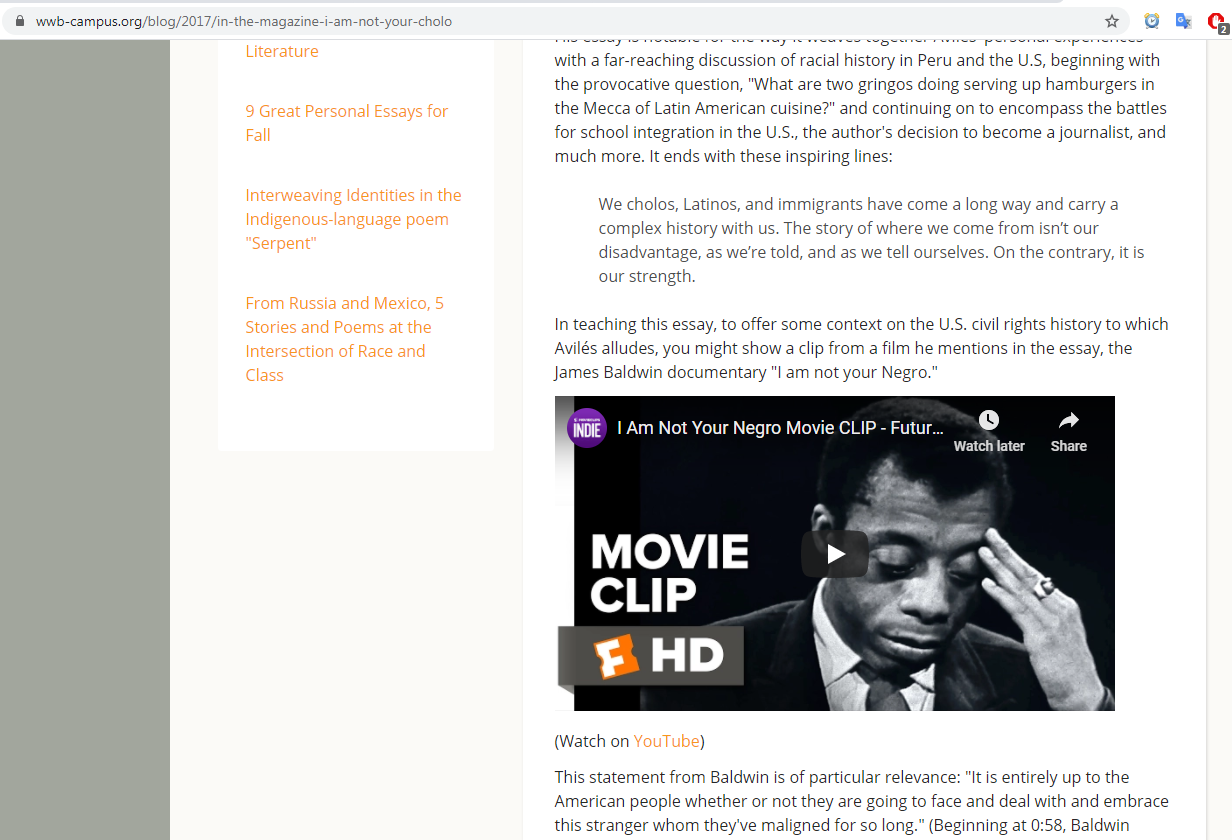“A Plurality of Voices”: Global Literature to Combat White Privilege
February 1, 2021

Nadia Kalman
Three white, privileged people sitting around a table in a radio studio do not guarantee a plurality of voices or respect for anyone who doesn’t share those privileges. . . . This is why we, as the least privileged in society, have to keep up the daily fight, to enter those spaces we still don’t occupy, where our voice isn’t heard as clearly, where our skin isn’t looked upon with the same respect.
– Marco Avilés, “I Am Not Your Cholo,” trans. by Sophie Hughes
In the passage above, Marco Avilés is referring to radio interviewers in Peru poking fun at a student protester from an indigenous community, but his point is relevant to any number of settings, including some of America’s classrooms. During a Zoom-visit with Texas college students last month, I was struck by a Mexican-American woman’s comment that she had spent her high school years reading white commentaries about her community but very little writing originating from within it.
That is exactly the issue which my organization, Words Without Borders, seeks to address. Words Without Borders makes contemporary writing from around the world freely available online, in the magazine Words Without Borders. I edit the sister website Words Without Borders Campus (wwb-campus.org), which helps bring this literature into classrooms, with resources and tools for teaching and learning. Marco Avilés’ essay is an example of the kind of work we featuremanga from Japan, lyric poetry from Egypt, and love stories from Russia.
When I first read Avilés’ essay, I was struck by how it effortlessly pulled together so many threads and references––a James Baldwin documentary and a meeting with an all-white class in Maine, among others. Later, as I became more familiar with his work (in part via a live Zoom meeting we hosted with educators), I understood how deeply this approach was rooted in the mission Avilés describes: bringing a “plurality of voices” into spaces where they have not previously been welcomed.
Although I have never articulated this goal as eloquently as Avilés, it undergirds many of the choices we make at Words Without Borders Campus. We have found that it is not enough simply to make global writing available to classrooms: if we want students to transcend ingrained ideas and social-media notions that bolster white privilege, we have to provide information that helps them see beyond stereotypes they might bring to their reading. And we have to help them begin to understand the history and culture that informs the writing. That is why we provide a depth of contextual resources alongside each piece of literature we publish—from maps and visual art to music and journalism—and it is also why we carefully vet all resources, paying particular attention to issues of accuracy and bias.

At the same time, to uplift a “plurality of voices” among students, we must offer those students choices in how they approach this learning and demonstrate their understanding, with many opportunities for different kinds of engagement and expression. Every piece of writing we publish or feature comes with a range of “ways in” and possible assignments.
For these reasons, I was delighted to join Professor Sonia Adams (who has herself taught Avilés’ work) and other CUNY faculty at an October meeting of Activism In Academia: Adjuncts in Dialogue & Action. (I found this meeting a perfect example of the power of a “plurality of voices,” coming together to share understandings and approaches). If you are an educator looking for ways to bring new global literature to your students, I invite you to visit Words Without Borders Campus (wwb-campus.org) and join our community, too.